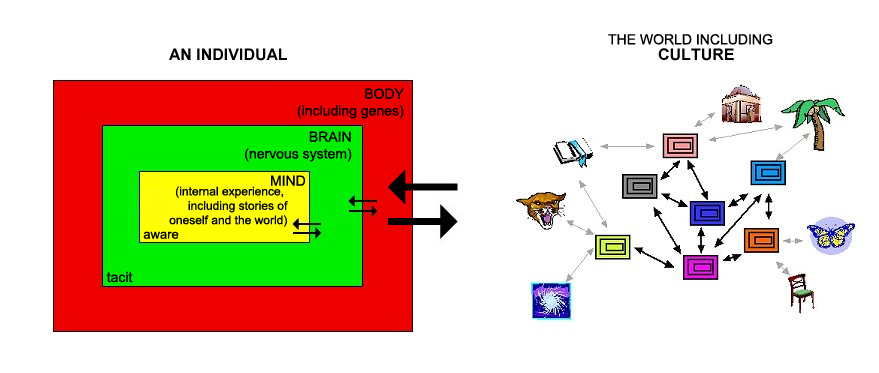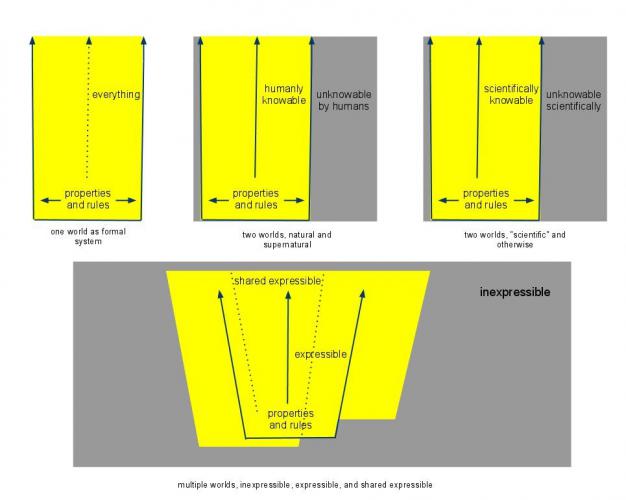Serendip is an independent site partnering with faculty at multiple colleges and universities around the world. Happy exploring!
Evolving Systems Course: PGnotes16

Making sense of ourselves in an evolving universe
Paul's notes - Session 16
Course subject: evolution (physical, biological, cultural, individual)
Course method: co-evolution, co-constructive inquiry, evolving by telling/hearing each other's stories, using them to create new ones, individually and collectively = co-constructive dialogue
Course arrangements:
- Thoughts from this week's discussion in forum by Monday evening.
- Paper for Wednesday: do some research on the life on an individual whose evolution interests you. Write a brief biography of that person focusing on what you find interesting.
- Read for Thursday discussion
- Alison Gopnik, How Babies Think, Scientific American (July, 2010), 303, 76-81
- Paul Bloom, The Moral Life of Babies, NYTimes Magazine, May 5
- Individual meetings
| Thursdays | Group A | Group B |
| 9 am | Elisa | Genesis |
| 9:30 | Aijingwen | Julie |
| 2:30 | Ilana | Christine |
| 3:00 | Angela | |
| 3:30 | Hillary | |
| 4:00 | Eva | Valentina |
| 4:30 | Mattie | Kayla |
| 5:00 | Carolina | Jordan |
Culture as consequence of biological evolution? Addition to biological evolution? Differs from biological evolution in what ways?
| the whole course? | evolution biological and cultural: similarities and differences? | fashion: a test case of cultural evolution as descent with variation and selection? |
Culture and cultural change
- What similar and different cultural practices have developed in our two esem section meetings?
- What new cultural practices might evolve from the intersection of the two?
Moving on to individual change
- Biological change influence cultural change and vice versa
- So too cultural change influences biological change and vice versa?
Cosmicomics: An Epic Search for Truth
- Reactions? What single character, event, idea most interested you? most puzzled you?
PG's center of the story (pp 285-288) - interacting individual and cultural change
- Bertrand Russell (1872-1970) - Can we solve human problems rationally?
- Gregory Cantor (1845-1918) - There is no "everything"
- Kurt Gödel (1906-1978) - "There will always be unanswered questions." (Russell: the Incompleteness Theorem meant the end of a Dream ... written in Greek two and a half millenia ago"
- Ludwig Wittgenstein (1889-1951) "What we cannot speak of, we must pass over in silence ... The things that cannot be talked about logically are the only ones that are truly important."
- Nelson Goodman (1906-1998) "The answer to the question 'What is the way the world is? What are the ways the world is?' is not a shush, but a chatter."
Despite ongoing cultural change, ongoing individual change, there is only evolution





